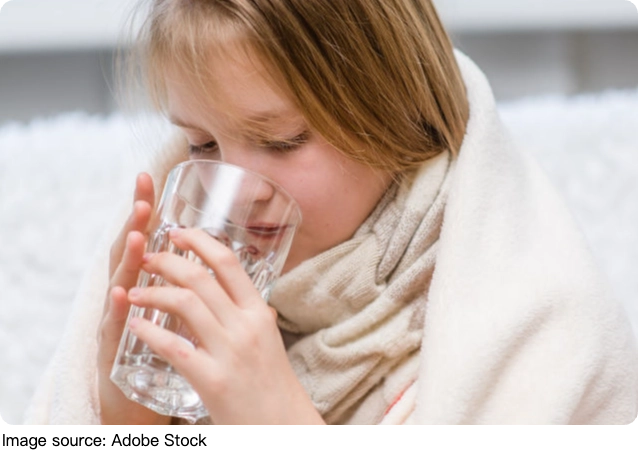Cold Cure or Costly Myth?

Dear Friends, navigating the world of cold remedies can be overwhelming, especially during cold and flu season.
With myriad symptoms like coughs, sore throats, and runny noses, knowing which medications truly help can make a significant difference. Explore the insights from medical professionals to sift through the noise.
Common Cold Cause
More than 200 viruses can lead to a cold, with rhinoviruses being the most prevalent. Each year, they affect over 3 million individuals in the U.S. Symptoms typically peak within three to five days and may include sneezing, sore throat, and fever, with some lasting up to 14 days. Understanding these symptoms lays the foundation for effective treatment.
Preventive Measures
As the adage goes, “an ounce of prevention is worth a pound of cure.” According to Dr. Brittany Chan, effective prevention involves regular handwashing with soap and water and the use of hand sanitizers when necessary. Face coverings, although more emphasized during the COVID-19 pandemic, remain a valuable tool in curtailing viral transmissions.

Stay Home When Sick
Preventing the spread of the cold is crucial. Dr. Chan advises that if someone is sick, particularly a child, they should remain at home to recover. This minimizes the risk of infecting others and is a fundamental aspect of public health.
Avoid Cold Medications for Kids
In pediatrics, cold medications are generally not recommended for children, especially those under the age of six. Instead, nasal saline solutions—safe and effective for all ages—can help alleviate congestion without the risks associated with medications.
Effectiveness of Saline
Nasal saline, a simple mixture of salt and water, works effectively to clear congestion. For infants, a few saline drops followed by suctioning can significantly relieve discomfort. Older children may benefit from saline sprays or neti pots, making this a recommended first option for symptom relief.
Understanding Antihistamines
While some antihistamines can offer relief for allergy-related symptoms, they have not been proven effective for cold symptoms in children. Furthermore, they may induce sedation or even paradoxical agitation in some children—an outcome to be avoided at all costs. Consulting a healthcare professional regarding antihistamines is advisable.
Honey as a Remedy
Parents often worry about their child’s persistent cough. For children over the age of one, honey serves as a natural and effective cough suppressant. Providing one teaspoon every few hours can alleviate nighttime coughing without the potential side effects of medicated alternatives.

Treating Symptoms
Since no cure exists for the cold, managing symptoms is crucial. Utilizing decongestants for nasal congestion and antitussives for persistent coughs—specifically those containing dextromethorphan—helps, as these ingredients are effective for treating uncomplicated coughs. Consultation with healthcare providers can guide effective treatment strategies.
Antibiotics Unnecessary
Colds are caused by viruses, and antibiotics combat bacterial infections—hence, they are ineffective against colds. The misuse of antibiotics can foster resistance and result in side effects, making it vital to reserve these drugs for appropriate situations.
Time Heals
Ultimately, patience is key in overcoming a cold. While remedies can alleviate symptoms, the passage of time remains the primary factor in recovery. Encouragement to allow the body to heal naturally is paramount.
When to Seek Care?
If experiencing severe symptoms, such as shortness of breath or high fever, medical attention is warranted. Warning signs, such as symptoms persisting beyond ten days or worsening conditions, require prompt evaluation by a healthcare professional to rule out complications.

Continued Monitoring
Monitoring symptoms is vital for preventing escalation. Acute care should be sought if symptoms worsen, as timely intervention can prevent complications. Consulting a physician when in doubt is always encouraged to ensure proper guidance.
Time for Action
In summary, while the common cold is prevalent, understanding effective treatments and preventive measures is essential for all. By educating oneself on reliable remedies and knowing when to seek medical advice, individuals can make informed decisions that lead to quicker relief and recovery.
-
 UTI Defense: Stop the BurnThink it’s just a sting? Discover expert-backed, surprising ways to stop UTIs before pain turns into peril!
UTI Defense: Stop the BurnThink it’s just a sting? Discover expert-backed, surprising ways to stop UTIs before pain turns into peril! -
 Avoid False PromisesIs Your Surgeon Insta-Famous Or Actually Qualified? What You Must Know Before Going Under The Knife!
Avoid False PromisesIs Your Surgeon Insta-Famous Or Actually Qualified? What You Must Know Before Going Under The Knife! -
 In LoveThe Huge Difference Between Instant Replies and ‘Seen’ Messages in Love! Which One Says More?
In LoveThe Huge Difference Between Instant Replies and ‘Seen’ Messages in Love! Which One Says More?